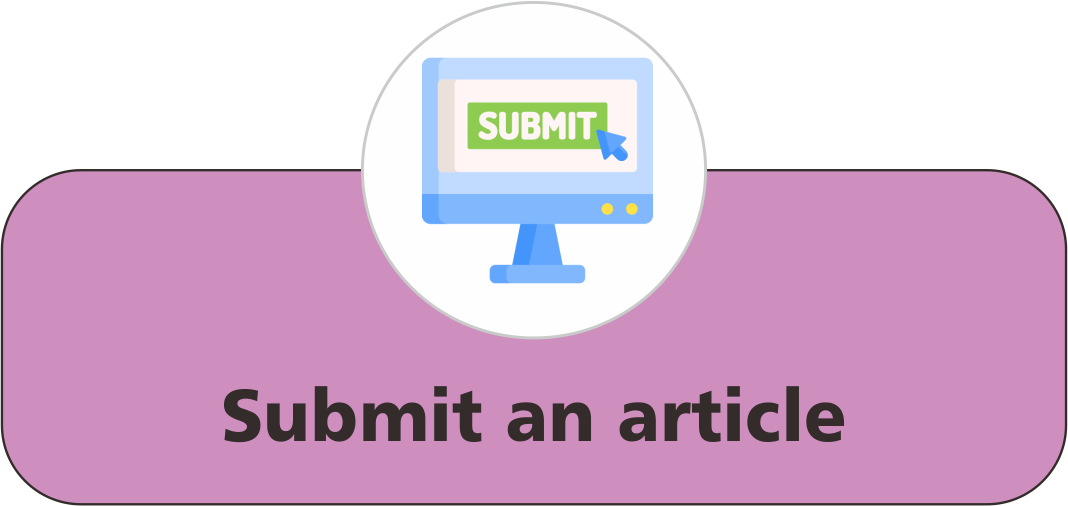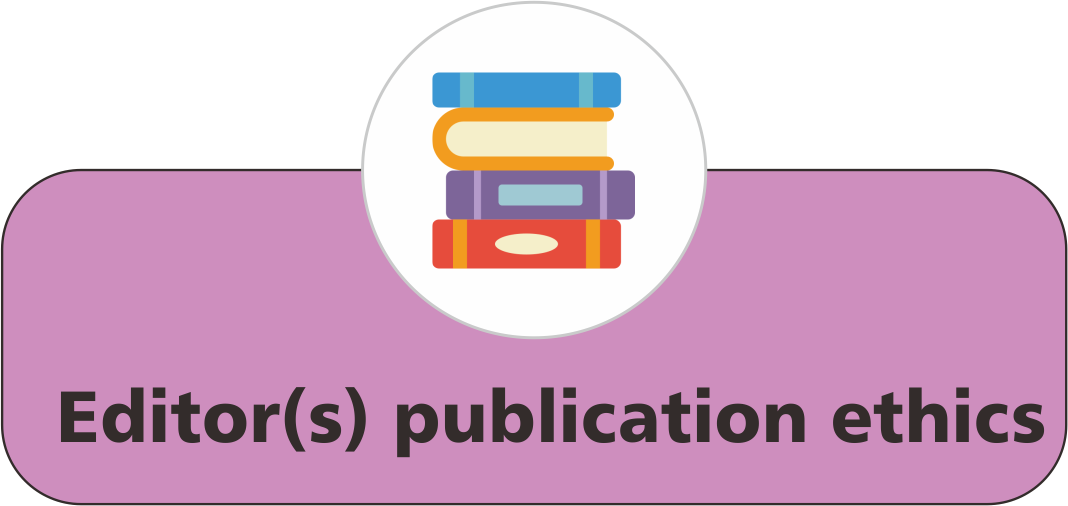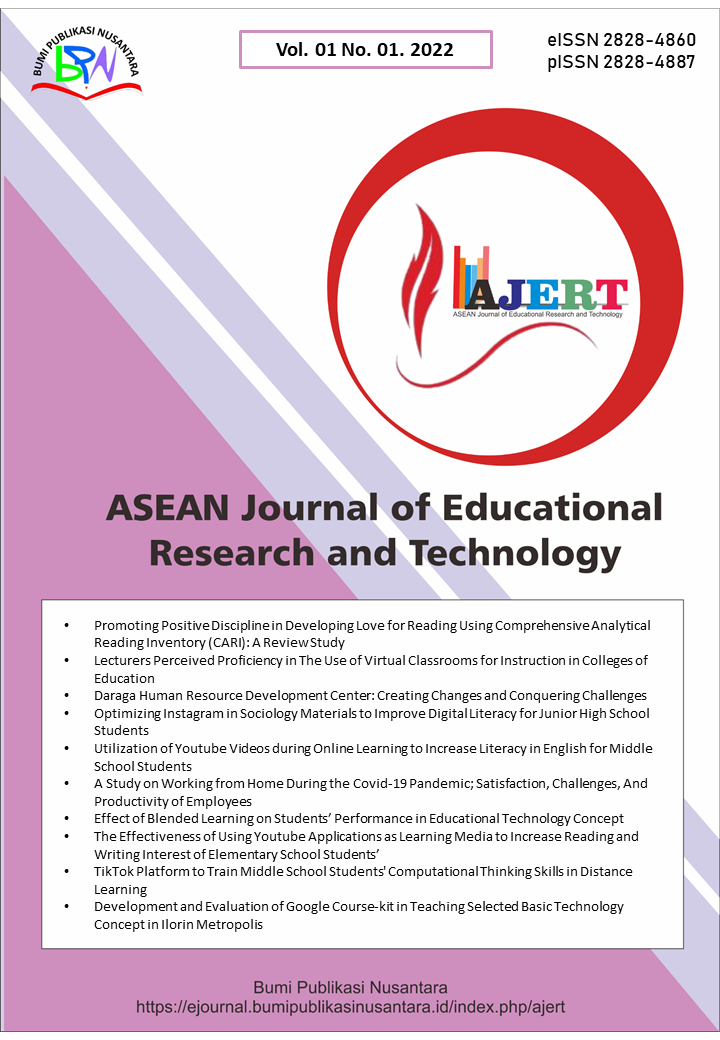Perception and Attitude of Undergraduates toward Online Learning Platforms in Post-Covid-19
 ), Semiu Olawale Makinde(2), Bola Mariam Sulyman(3),
), Semiu Olawale Makinde(2), Bola Mariam Sulyman(3),
(1) Al-Hikmah University
(2) Al-Hikmah University
(3) Al-Hikmah University
 Corresponding Author
Corresponding Author
Abstract
Keywords
References
Adenubi, O. A., Samuel, N., and Oyenuga, A. O. (2025). A framework for education technology integration in Nigerian basic school system: Digital framework for technology integration in education (diftie) for basic school system. University of Ibadan Journal of Science and Logics in ICT Research, 13(1), 188-199.
Almufarreh, A., and Arshad, M. (2023). Promising emerging technologies for teaching and learning: Recent developments and future challenges. Sustainability, 15(8), 6917.
Amruta, H., Sushil, N., and Poonam, R. (2016). Higher education in India: Present status and path ahead. International Journal in Management and Social Science, 4(6), 441-456.
Enyoojo, S. F., Ijah, C. E., Etukudo, E. M., Usman, I. M., Ezeonuogu, C. S., Adaramati, T., and Aigbogun, E. (2024). Satisfaction and learning experience of students using online learning platforms for medical education. BMC Medical Education, 24(1), 1398.
Ibironke, E. S., Ogunlade, O. O., Oladosu, K. K., and Afolayan, B. F. (2018). Experts' rating and students' reaction of interactive multimedia instructional package on selected educational technology concepts in Kwara State. International Journal for Innovative Technology Integration in Education, 2(2), 1-10.
Johari, N., Mustaffha, N., Ripain, N., Zulkifli, A., and Ahmad, N. W. (2015). Students' acceptance of online learning in KUIS. First International Conference on Economics and Banking, 15(1), 326-335.
Lazim, C. S. L. M., Ismail, N. D. B., and Tazilah, M. D. A. K. (2021). Application of technology acceptance model (TAM) towards online learning during covid-19 pandemic: Accounting students perspective. International Journal of Business, Economics and Law, 24(1), 13-20.
Mariscal, J., Mayne, G., Aneja, U., and Sorgner, A. (2019). Bridging the gender digital gap. Economics, 13(1), 20190009.
Marjan, L. L. U., Kusumantara, P. M., and Mukaromah, S. (2018). Analisis hubungan antar variabel technology acceptance model (tam) pada e-learning UPN “Veteran” Jawa Timur dengan pendekatan uji signifikansi. Jurnal Sistem Informasi Dan Bisnis Cerdas, 11(2), 13-24.
Mbato, S. I., and Eguzozie, N. G. (2024). Technical and vocational education at basic and post basic levels of education: implications for poverty eradication and youth unemployment in Nigeria. Journal of Education in Developing Areas, 31(5), 36-46.
Olafare, F. O., Adeyanju, L. O., and Fakorede, S. O. (2018). Colleges of education lecturers attitude towards the use of information and communication technology in Nigeria. Malaysian Online Journal of Educational Sciences, 5(4), 1–12.
Orser, B., Riding, A., and Li, Y. (2019). Technology adoption and gender-inclusive entrepreneurship education and training. International Journal of Gender and Entrepreneurship, 11(3), 273-298.
Rosenthal, R. L. (2008). Older computer-literate women: Their motivations, obstacles, and paths to success. Educational Gerontology, 34(7), 610-626.
Saravanakumar, A., Raja, G., and Sivakumar, P. (2023). Transforming education: Perceptions and challenges of technology-enabled teacher education programmes. Open Access Research Journal of Engineering and Technology, 5(2), 001-007.
Sieverding, M., and Koch, S. C. (2009). Evaluating of computers competence: How gender matters. Computers and Education, 52(3), 696 - 701.
Varela, O. E., Cater III, J. J., and Michel, N. (2012). Online learning in management education: An empirical study of the role of personality traits. Journal of Computing in Higher Education, 24(3), 209-225.
Wang, Y. S., Wu, M. C., and Wang, H. Y. (2009). Investigating the determinants and age and gender differences in the acceptance of mobile learning. British Journal of Educational Technology, 40(1), 92-118.
Widianto, Y. F., and Indyastuti, D. L. (2020). Technology acceptance model on Gojek applications in Purwokerto. Jurnal Akuntansi, Manajemen dan Ekonomi, 22(1), 12-20.
Article Metrics
Abstract View : 647 times
: 647 times Download : 369 times
Download : 369 times
Refbacks
- There are currently no refbacks.
Copyright (c) 2025 Bumi Publikasi Nusantara

This work is licensed under a Creative Commons Attribution-ShareAlike 4.0 International License.









